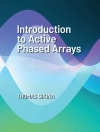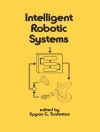Every endeavour is covered by some fault, just as ?re is covered by smoke. Therefore one should not give up the work born of his nature, even if such work is full of fault. – The Bhagvad-Gita (18.48) This book is the outcome of the research and developmentcontributions of partners from three different continents, Asia, Europe, America, coming from universities, research centers, industrial partners and SMEs (Small and Medium Enterprise), all of them collaborating in MAGNET (My Adaptive Personal Global Net) and MAGNET Beyond project supported by European Commission within the Sixth Framework Programme (FP6). The project was focusing on a secure user-centric approach developingsecure Personal Networks in multi-network, multi-device, and multi-user environments. The innovative concept of Personal Network (PN), which was introduced and developed in MAGNET, ?nds in this book the ?rst con?rmation of the success that the future of wireless communications is bound to achieve. The importance of this book is not only related to being the ?rst work on PNs, it also gives an overview of operation of a big project, like MAGNET, and in fact the organisation of the book re?ects how then project itself has been structured.
Table des matières
List of Figures. List of Tables. Preface. List of Partners in MAGNET and MAGNET Beyond. About the Editor. Acknowledgements. Abbreviations. Chapter 1. 1.1 The Concept of Personal Networks. 1.2 The Concept of the PN-Federation. 1.3 Optimised Air Interfaces for PAN, PN and PN-F Communications. 1.4 Security, Privacy and Trust. 1.5 PN Platforms 1.6 Preview of This Book. References. Chapter 2. 2.1 Introduction. 2.2 User Requirements. 2.3 User Profiles & Profile Management. 2.4 Implementation of GUIs, General Services and Pilot services. 2.5 Evaluation. 2.6 PN Business Models. 2.7 Conclusions. References. Chapter 3. 3.1 Introduction. 3.2 PN Architecture. 3.3 Self-Organization at Network Level. 3.4 PN-Aware Service Management. 3.5 Collaboration Between Users. 3.6 PN Context Management. 3.7 Conclusions. References. Chapter 4. 4.1 Introduction. 4.2 Air Interface Description. 4.3 Performance Comparison of MB AIs with Existing Technologies. 4.4 Advanced Topics in the Design of LDR and HDR Ais. References. Chapter 5. 5.1 Introduction. 5.2 Security Evaluation: Threat Analysis. 5.3 A User Centric Security Perspective. 5.4 PN Key Management. 5.5 PN-F Key Management. 5.6 Conclusions. References. Chapter 6. 6.1 Introduction. 6.2 Low Data Rate FM-UWB Prototype. 6.3 High Data Rate MC-SS Prototype. 6.4 Conclusions. References. Chapter 7. 7.1 Introduction. 7.2 Implementation of the PN and PN-F Concept. 7.3 Testbed Description. 7.4 Conclusions. References. Chapter 8. 8.1 Introduction. 8.2 Standardisation Activities and Impact. 8.3 Exploitation Activities. 8.4 Conclussions. References. Chapter 9. 9.1 Introduction. 9.2 Summary of Research Achievements. 9.3 Future Directions of Research for PN and PN-F. List of Authors. Index.












